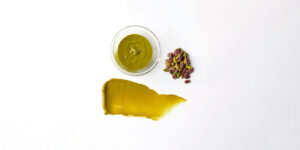Categories Miscellaneous
Intestinal flora are responsible for the benefits of dark chocolate

A recent study from the University of Louisiana, presented at the recent grand gala of the American Association of Chemistry (ACS), the largest scientific group in the world (161,000 members), has made public the health benefits to the heart of dark chocolate, a mystery that has confounded science until now. Certain bacterias in our intestinal flora are responsable for absorbing the chocolate, fermenting it and then converting it into anti-inflamatory elements that pass into the blood and which then positively affect the heart.
The announcement was made at the recent 247th Annual Conference of the ACS in Dallas (Texas). “Good” microbes that live in our intestines, such as Bifidobacterium and the bacteria in lactic acid, feed on dark chocolate to grow and ferment, producing smaller polymers which are responsable for the anti-inflamatory action. More precisely, the polyphenols and anti-oxidants in cocoa, such as catequina and epcatequina, as well as a small quantity of fiber, are poorly digested by the stomach until it reaches our colon, when the “good” microbes take over.
The statement clarifies that these intestinal bacterias have nothing to do with other bacterias that can live in the intestine, for example, Cloristridium and E.Coli, which provoke all kinds of adverse affects such as flatulence and diarrhea.
John Finley, PhD, the person responsible for the research, has also added that a diet that combines dark chocolate with prebiotics results in an overall improvement of health. These prebiotics are found in foods such as raw garlic or whole wheat flour, and although we cannot digest them, they play an anti-inflammatory role, which then triggers the good micro-organisms in our gut flora. The combination of dark chocolate with fruits like pomegranate and acai also contribute to these heart benefits. John Finley is confident that the food industry will know how to apply these findings in their future development strategies.


